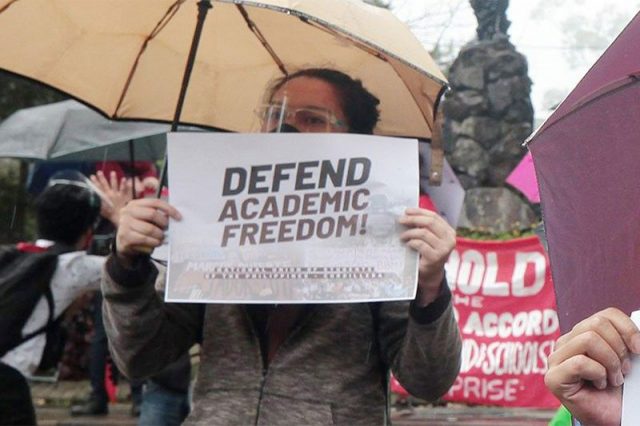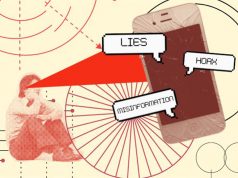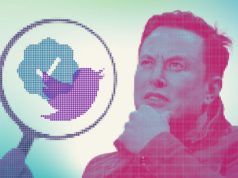
Two months following their online manifesto to defend historical truth and academic freedom, Filipino educators and scholars laid out ways on how the academic sector can counter the twin problem of disinformation and red-tagging.
The rise of influencers has undermined the public trust in experts and mainstream media, said Assistant Professor Fatima Gaw of the UP Diliman (UPD) College of Mass Communication.
In a July 6 webinar co-presented by Kritika Kultura and the Network in Defense of Historical Truth and Academic Freedom, Gaw urged academics to involve the public in research rather than treat them as mere audiences.
“State universities already do this, but they should strengthen this mandate at a system-level. Private academic institutions should be more deliberate as well in operationalizing what it means to be in service of the Filipino public,” Gaw said.
Francis Gealogo, history professor at the Ateneo de Manila University, focused on social media platforms, which he said have become “sites of half-truths, denials, lies and conspiracy theories or even historical distortions, …to advance certain political agenda.”
Gealogo added that history, as a discipline, tends to become more vulnerable with organized troll networks polluting the way information is spread on social media.
“We are definitely faced with new challenges in history education. The essential question that should always define and govern the craft: Para kanino and tungo saan?” Gealogo said.
Gaw suggested that educators should increase their online visibility and relevance by using their extension work to build communities both online and offline.
“We need to take the substance of what we do and transform it into forms that can compete in this marketplace of ideas and platforms,” she said.
On red-tagging
Members of the academe also expressed serious concern over heightened red-tagging attacks against academics, the media and minority groups.
Professor Emeritus and former UPD Chancellor Michael Tan, who took in displaced Lumads on Diliman grounds during his term, spoke about the threat of red-tagging posed to minority groups.
It can be recalled that in 2015, hundreds of Lumads stayed in UPD after traveling all the way from Mindanao following the killing of Lumad leaders and the closure of Lumad schools amid intense militarization in their communities.
Tan said he had previously received baseless red-tagging threats accusing the indigenous groups of being communist rebels, to which he said: “What we forget when we talk about academic freedom is that we owe it…to those whose voices had been muted, to those who had not been allowed to speak out.”
Red-tagging is a tactic commonly used by state agencies and has in several cases led to harassment and killings of government critics. The Human Rights Watch also flagged red-tagging for “rapidly shrinking the space for peaceful activism” in the Philippines.
In the same forum, Arnold Alamon, associate professor Mindanao State University – Iligan Institute of Technology cautioned the public against the “chilling effect” produced by red-tagging. Alamon shared how he was personally red-tagged in April 2019 at the height of former President Rodrigo Duterte’s drug war.
“Some would say that flight equals guilt. But an understanding of the history of the dirty wars initiated by the state against its own people over the decades tells us that the fight isn’t fair and even unarmed civilians are targeted,” Alamon said.
In pushing back against red-tagging, Alamon shared that the academic sector can start by fostering “stronger community bonds.” He then appealed to Filipino scholars from central cities “to always look towards those [scholars] in the margins [and] in far more precarious positions.”
Meanwhile, Tan suggested that Filipino scholars should document the history of minority groups aside from countering historical revisionism.
“There are so many stories that have not made it into the history textbooks. And we are a nation made poorer because of these omissions,” Tan said.
In the same webinar, more than 200 educators and scholars also attended the formal launch of the Network in Defense of Historical Truth and Academic Freedom, which previously vowed to promote academic initiatives “to protect the memories of a most violent and traumatic period” during the Martial law era.









